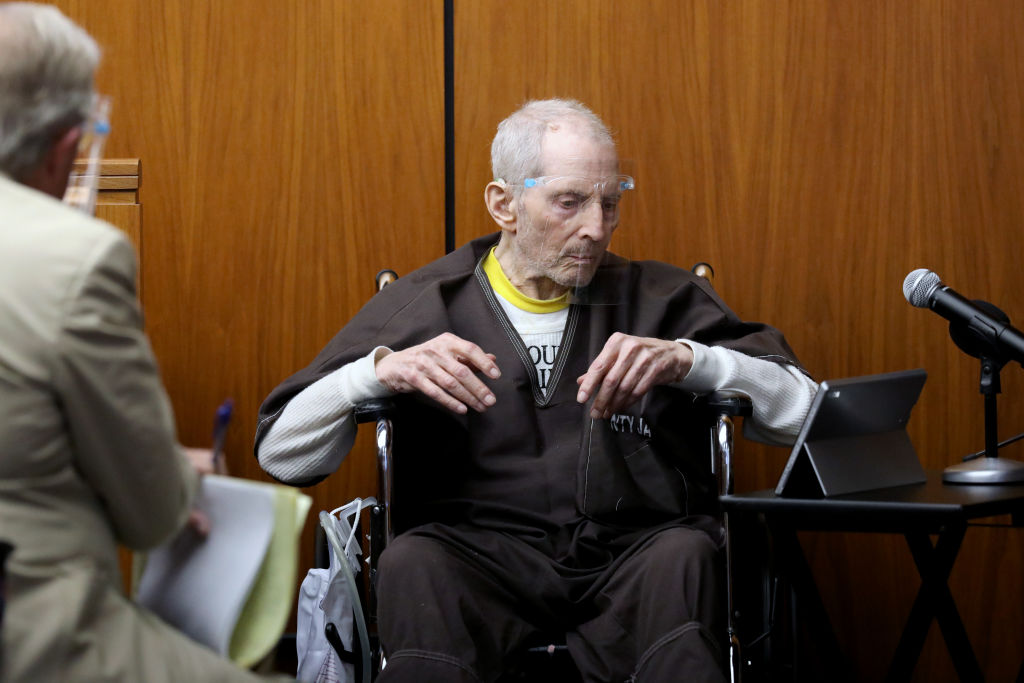Can a true crime documentary end up having an effect on the case it covers? Absolutely. Nearly any work of investigative journalism can end up sparking change in its area of coverage; documentary films and series are no exception. The process by which Errol Morris’s 1988 documentary The Thin Blue Line resulted in its subject, Randall Adams, having all charges against him dropped is one of the higher-profile examples, but it’s far from the only one.
With last week’s news that real estate heir Robert Durst was convicted in the murder of Susan Berman, a logical question that follows might include speculation about the role of a recent documentary on Durst in the case against him. Durst’s life — including the mysterious disappearance of his first wife Kathleen McCormack and the deaths of both Berman and Morris Black — didn’t lack for ominous details even before this month’s conviction.
Durst’s story has been chronicled in both fictionalized and documentary form. The 2010 film All Good Things, starring Ryan Gosling and Kirsten Dunst, followed the broad strokes of Durst’s life. Its director Andrew Jarecki then took a documentary approach for The Jinx, a six-hour series made for HBO which featured audio that sounded a whole lot like Durst confessing to multiple murders. Writing at Vulture, Matt Zoller Seitz put the comments into context.
“[Durst’s] ‘What the hell did I do? Killed them all, of course’ will be interpreted as both a straightforward admission of multiple murder and a panicked projection of what the public might think of Durst,” he wrote in 2015.
From reading accounts of Durst’s trial, it sounds like The Jinx played a not insignificant role in the case against him. Writing for The New York Times about Durst’s conviction, Charles V. Bagli noted that the jury in the case heard “more than 20 hours of interviews with the producers of the documentary The Jinx: The Life and Deaths of Robert Durst.”
What makes this especially notable is the way that The Jinx came about to begin with — in the wake of the release of All Good Things, Durst contacted Jarecki about telling his story on film. In a 2015 interview with Entertainment Weekly, the filmmaker argued that this was, in fact, a way for Durst to confess.
“Even though he might not feel guilt in the same way that many of us might, he knows that murdering his wife was one of the terrible moments in his life, and he got away with that. He got away with murdering his best friend, He got away with murdering his neighbor in Galveston, Texas,” Jarecki said. “He was carrying around this burden and needed to tell the story, knowing that there was a very real risk that he wouldn’t be entirely able to control that information flow.”
The documentary didn’t just help reopen an investigation. It also, as Edward Helmore wrote at The Guardian, provided the prosecution with a piece of evidence linking Durst to the murder of Berman, related to an ostensibly anonymous note whose author turned out to be Durst. As The Washington Post reported, Durst came to regret working with the filmmakers, dubbing his decision a “very, very, very big mistake.”
Durst’s combination of wealth, notoriety and an apparent desire to confess might represent something of a perfect storm; it’s hard to imagine another true crime case as high-profile as this one playing out along similar lines. But it remains a haunting narrative built on other haunting narratives — and it’s likely that more is still to be written about this case.
This article appeared in an InsideHook newsletter. Sign up for free to get more on travel, wellness, style, drinking, and culture.
